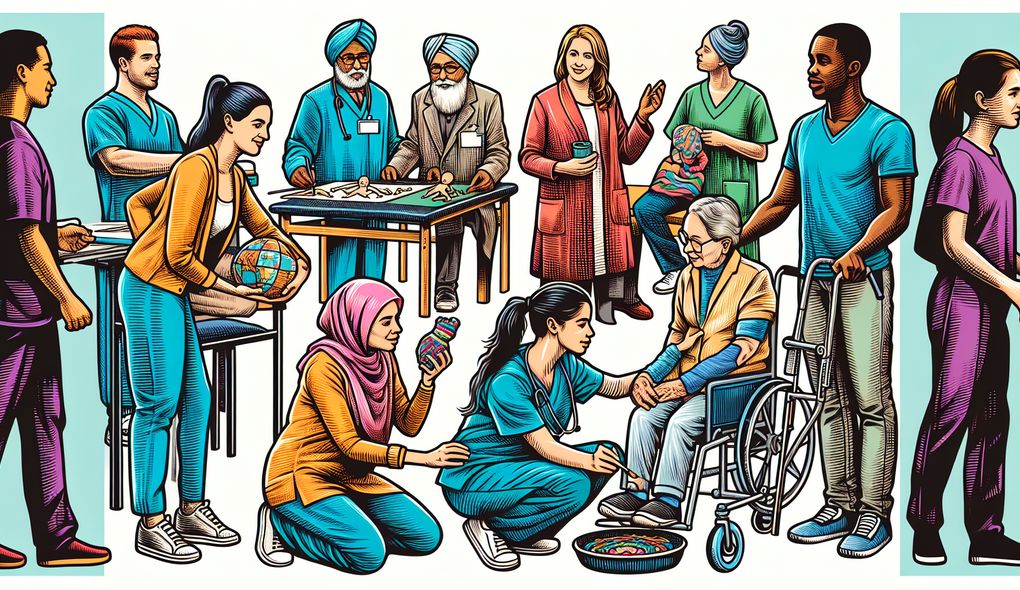How do you handle unexpected changes or challenges during therapy sessions? Can you give an example of a time when you had to quickly adapt and make decisions on the spot?
SENIOR LEVEL

Sample answer to the question:
When unexpected changes or challenges arise during therapy sessions, I stay calm and focused on finding the best solution. For example, during a therapy session with a child with autism, the child suddenly became agitated and had a sensory overload. I quickly adapted by adjusting the environment to create a calm and soothing space. I dimmed the lights, reduced noise, and provided deep pressure input through therapeutic techniques like weighted blankets. This helped the child regain their composure and continue with the session. By being flexible and thinking on my feet, I was able to create a positive therapeutic experience for the child.
Here is a more solid answer:
When unexpected changes or challenges occur during therapy sessions, my approach is to remain calm and quickly assess the situation. For instance, during a therapy session with a patient recovering from a stroke, the patient suddenly experienced severe dizziness and nausea. I immediately recognized the symptoms of vertigo and adapted the therapy plan accordingly. I modified the activities to minimize head movements, supported the patient in a seated position, and provided gentle exercises to help alleviate the symptoms. Additionally, I collaborated with the patient's medical team to ensure appropriate follow-up and adjustments to the treatment plan. This allowed us to address the unexpected challenge effectively and continue progressing towards the patient's goals.
Why is this a more solid answer?
The solid answer expands upon the basic answer by providing more specific details about the candidate's approach to handling unexpected changes or challenges during therapy sessions. The candidate demonstrates their advanced knowledge of therapeutic techniques by describing how they adapted the therapy plan to address the patient's symptoms of vertigo. They also highlight their strong analytical and problem-solving abilities by recognizing the symptoms and collaborating with the patient's medical team. However, the answer could be improved by further emphasizing the candidate's ability to work collaboratively in a multi-disciplinary setting.
An example of a exceptional answer:
Handling unexpected changes or challenges during therapy sessions requires a combination of adaptability, critical thinking, and collaboration. In a recent therapy session with a patient with multiple sclerosis, the patient suddenly experienced muscle weakness and difficulty gripping objects, which was not a typical occurrence during our sessions. I immediately assessed the situation and recognized the importance of addressing the new challenge to ensure optimal outcomes. I quickly adapted the therapy activities by introducing adaptive aids and modifying the patient's positioning to provide better support. Simultaneously, I collaborated with the patient's neurologist to gather additional insights and coordinate any necessary medical interventions. This collaborative approach not only helped address the immediate challenge but also facilitated ongoing adjustments to the treatment plan, ensuring that the therapy remained effective and impactful for the patient.
Why is this an exceptional answer?
The exceptional answer stands out by showcasing the candidate's ability to handle unexpected changes or challenges during therapy sessions with a high level of expertise. The candidate effectively demonstrates their advanced knowledge of therapeutic techniques by describing how they adapted the therapy activities to address the patient's muscle weakness and difficulty gripping objects due to multiple sclerosis. They also emphasize their strong analytical and problem-solving abilities by recognizing the importance of collaborating with the patient's neurologist to gather additional insights for ongoing treatment adjustments. This answer thoroughly addresses the evaluation areas and provides a comprehensive example of the candidate's abilities.
How to prepare for this question:
- Familiarize yourself with a variety of therapeutic techniques and interventions to be prepared for unexpected challenges during therapy sessions.
- Develop strong analytical and problem-solving skills, as they are essential when quickly adapting and making decisions on the spot.
- Practice working collaboratively in a multi-disciplinary setting by seeking opportunities to collaborate with professionals from different fields.
- Stay updated on the latest research and evidence-based practices in occupational therapy to ensure that you can integrate them into therapy sessions.
- Reflect on your past experiences and think about specific examples where you had to handle unexpected changes or challenges during therapy sessions. Be prepared to discuss these examples during the interview.
What are interviewers evaluating with this question?
- Advanced knowledge of therapeutic techniques and interventions
- Strong analytical and problem-solving abilities
- Ability to work collaboratively in a multi-disciplinary setting

